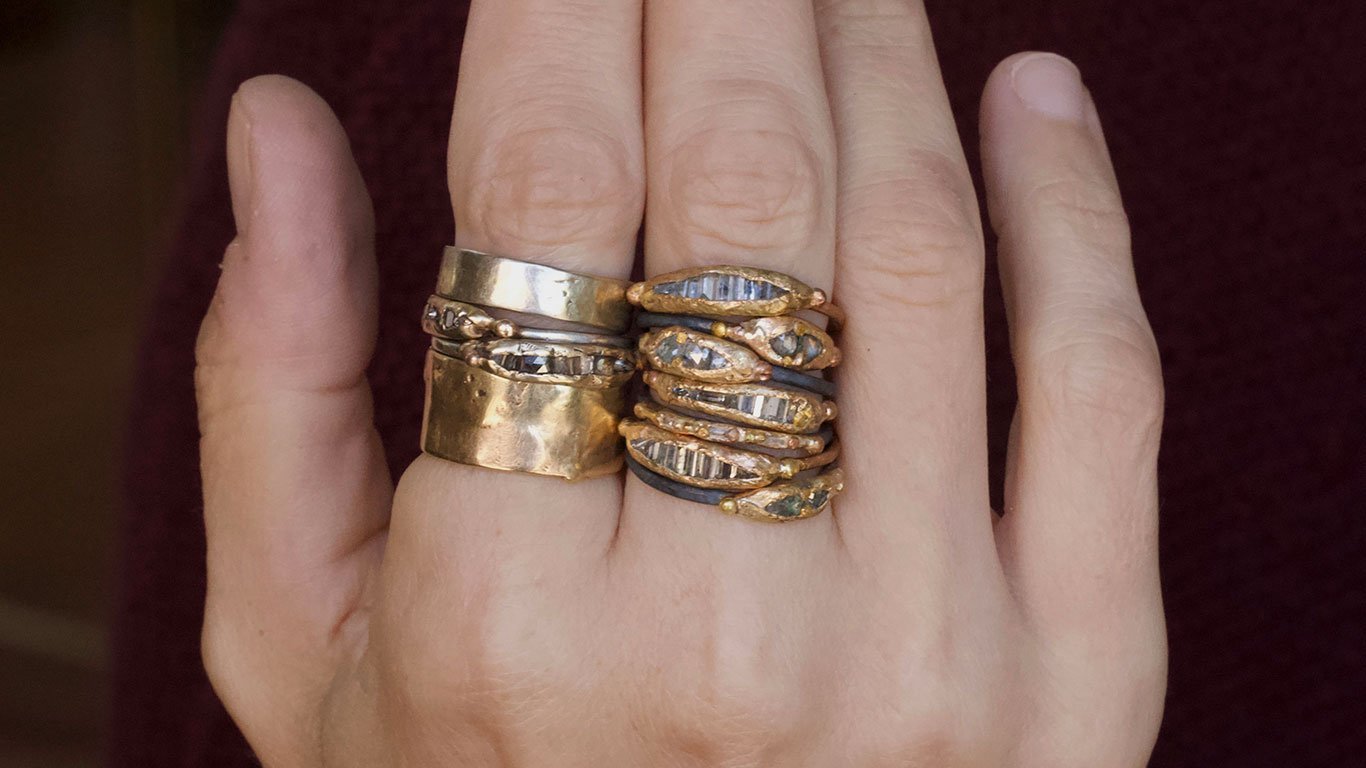
Tourmaline Mythology: The Electromagnetically Charged Gemstone
Tourmaline’s name is derived from the Sinhalese word ‘tōramalli’, a reference to the multi-colored gemstones found around Sri Lanka.
It is found in a variety of colors, from black to blue to multi-colored, each with their own unique symbology, uses and histories.

Tourmaline’s popularity in Europe can be traced back to the Dutch East India Company, the most infamous megacorporation of the early 17th century. The European voyagers discovered tourmaline in Sri Lanka, and noticed one of black tourmaline’s most impressive and seemingly otherworldly property, its ability to become electromagnetically charged! The Dutch used tourmaline to clean out their pipes, giving it the name ‘Aschentrekker’ or ‘ash puller’. To charge tourmaline, heat or friction must be applied to one end, creating a negative and a positive side.
Black tourmaline, also known as ‘Schorl’, is strikingly beautiful. It has been used as a protection talisman, helping to neutralize negative energies and ward off misfortune for the user. In Chinese Feng Shui, black tourmaline is associated with creating a shield of energetic protection and helping to increase empathy in its wearer.

Tourmaline is also said to be useful for absorbing harming electromagnetic waves from our electronic gadgets, something we could all use in our tech-filled modern lives.
Though black is a common color, we can also find purple, yellow, pink, watermelon, blue, green and multi colored tourmaline too! The various colors are associated with different chakras, such as the Heart chakra for love and the Root chakra for energetic grounding. Cultures all over the world have used tourmaline for energetic protection during shamanic rituals.

All the colorful tourmaline crystals change color when viewed at differing angles, a
property known as ‘pleochromism’, making it difficult for even the best gem cutters to work with and even more valuable in our eyes.
In 1876, Charles Lewis Tiffany of the famous ‘Tiffany & Co’ luxury jewelry company made an innovative move by purchasing tourmaline from gemologist Dr George Frederick Kunz. It might seem normal to us today, but this was the beginning of multicolored gemstones in high-end jewelry. Dr Kunz is also known for his role in discovering, cutting and shaping a massive yellow diamond found in South Africa, known to us today as the famous ‘Tiffany Diamond’.
We use Tourmaline sourced from all over the world to create one of a kind jewelry. To get yours, select your preferred options from our made to order Tourmaline page here.



